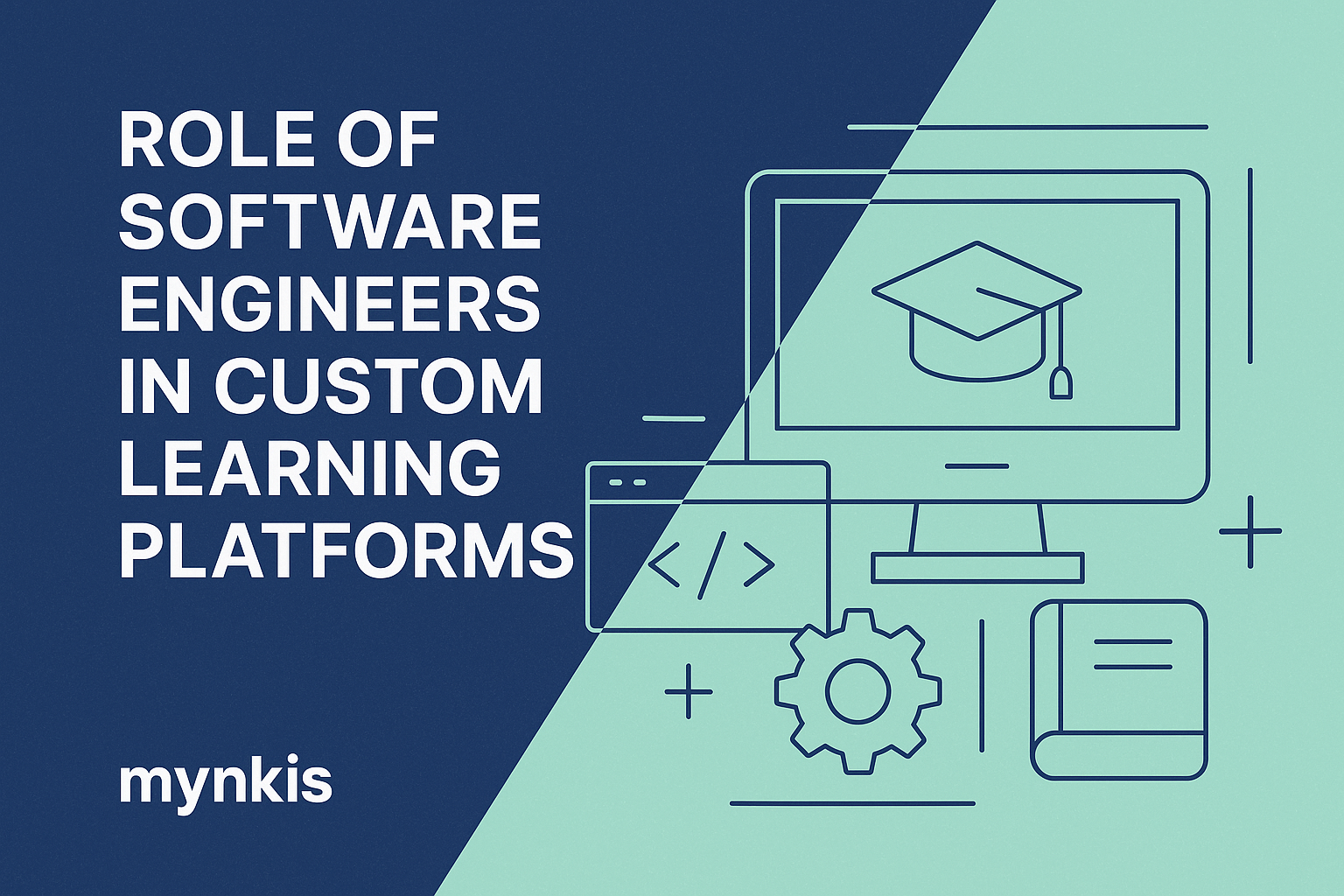Schedule a Demo
When it comes to designing custom learning management systems (LMS) and educational websites, the role of software engineers cannot be overstated. These professionals bring a critical mix of technical prowess and innovative thinking to the table, ensuring that the digital platforms not only meet but exceed the unique needs of educational institutions. What's fascinating is how these systems are tailored to facilitate learning, manage course materials, and enhance interaction in ways that generic software cannot achieve.
Software engineers in custom development are akin to the architects and builders of the digital world. From the moment an idea sprouts, through the entire lifecycle of development and deployment, engineers manage every phase meticulously. Their roles encompass design, coding, testing, and maintenance—each step being crucial to delivering a seamless educational experience. Their knowledge of programming languages, frameworks, and platforms isn't just theoretical; it's actively shaping the future of education.
The effectiveness of a custom software development project for schools and universities largely depends on the ability of software engineers to specialize. Whether it's developing robust databases to manage student records securely or integrating multimedia for rich, interactive learning experiences, these specialists turn abstract educational goals into functional realities. Personalization is key, and the software engineers I've met or collaborated with vividly demonstrate how tuning into client needs can transform static systems into dynamic platforms that adapt and grow with educational strategies.
In the development of educational websites, incorporating search engine optimization (SEO) is a non-negotiable factor for expanding digital presence and engagement. Software engineers collaborate closely with digital marketers to ensure that the website not only functions excellently but also ranks high on search engines. By optimizing elements such as site architecture, loading speed, and keyword-rich content, they boost the platform's visibility—transforming these educational tools into thriving hubs of knowledge and interaction.
One of the standout aspects of working with software engineers in the education sector is their deep commitment to aligning development efforts with broader educational objectives. They strive to create platforms that not only automate administrative tasks but also enhance learning outcomes. Through iterative design and feedback loops with educators, these engineers create customizable modules, interactive quizzes, and real-time data analytics that personalize the learning experience for each student. In my interactions, the passion and dedication of engineers to these goals have been palpable and inspiring.
User experience (UX) is at the forefront of educational software development. Engineers meticulously design interfaces that are intuitive and welcoming to students, educators, and administrators alike. The ultimate aim is to diminish the learning curve so that users can focus on their educational journey without being bogged down by complex system navigation. Moreover, by incorporating user feedback at various stages, they ensure the software remains relevant and user-friendly, emphasizing their role as perpetual learners alongside their institutional clients.
Emerging technologies such as artificial intelligence (AI), virtual reality (VR), and big data analytics are reshaping the educational landscape. Software engineers play a pivotal role in integrating these technologies into custom software solutions. For example, AI can offer personalized learning paths, while VR immerses students in unparalleled educational experiences. Engineers must constantly upskill and stay at the forefront of technology trends to offer the best solutions to educational institutions.
The platforms created for educational institutions need to be scalable—to accommodate the fluctuating numbers of users and to cope with an ever-growing archive of course materials and data. Software engineers employ state-of-the-art infrastructure solutions, ensuring the system can handle high traffic during crucial periods like enrollment and examination phases. Scalability is not just an afterthought but an integral part of the development philosophy embedded in every line of code they write.
The beauty of crafting customized educational platforms lies in the enterprise web solutions that emerge from interdisciplinary collaboration. Software engineers do not work in silos; they collaborate with educators, digital strategists, and user experience designers to ensure the end product is holistic. This collaboration involves translating complex educational theories into actionable digital features, demonstrating the versatility and adaptiveness of software engineers.
Looking to the future, the potential for further innovation in educational platforms is vast. Adaptive learning systems powered by machine learning algorithms could revolutionize education by offering individual curricula to students based on their learning patterns. The agility and forward-thinking mindset of software engineers in taking these concepts from ideation to implementation has set the stage for a new era of education that is more personalized, effective, and engaging than ever before.
In an era where data breaches can be catastrophic, the role of software engineers extends into the critical realm of security. When developing custom learning management systems, these professionals apply stringent security protocols to protect sensitive student and institution data. Secure coding practices, regular updates, and proactive monitoring constitute an ongoing effort to keep the platforms safe and trustworthy—a responsibility that software engineers embrace fully.
Integrating open-source technologies into educational platforms enhances flexibility and encourages community engagement. Software engineers must navigate this landscape, choosing robust, community-supported solutions that can be customized according to specific educational needs. The use of open-source also fosters a culture of collaboration and innovation, amplifying the potential for technological breakthroughs in learning environments.
Delivering a custom learning management system or educational website is just the beginning. Software engineers take on the continuous task of maintaining and updating the platform to ensure it remains effective, secure, and cutting-edge. This might involve performance optimization, bug fixes, or adding new features in response to evolving educational trends—reflecting the dedication to lifelong learning that is central to both education and engineering.
Finally, one of the overarching roles software engineers fulfill is championing accessibility. Designing with inclusivity in mind means educational platforms become pathways to learning for everyone—regardless of physical, sensory, or cognitive differences. From creating interfaces that support screen readers to ensuring color contrast ratios meet accessibility standards, engineers advocate for all learners to have equal opportunity to benefit from digital education.
